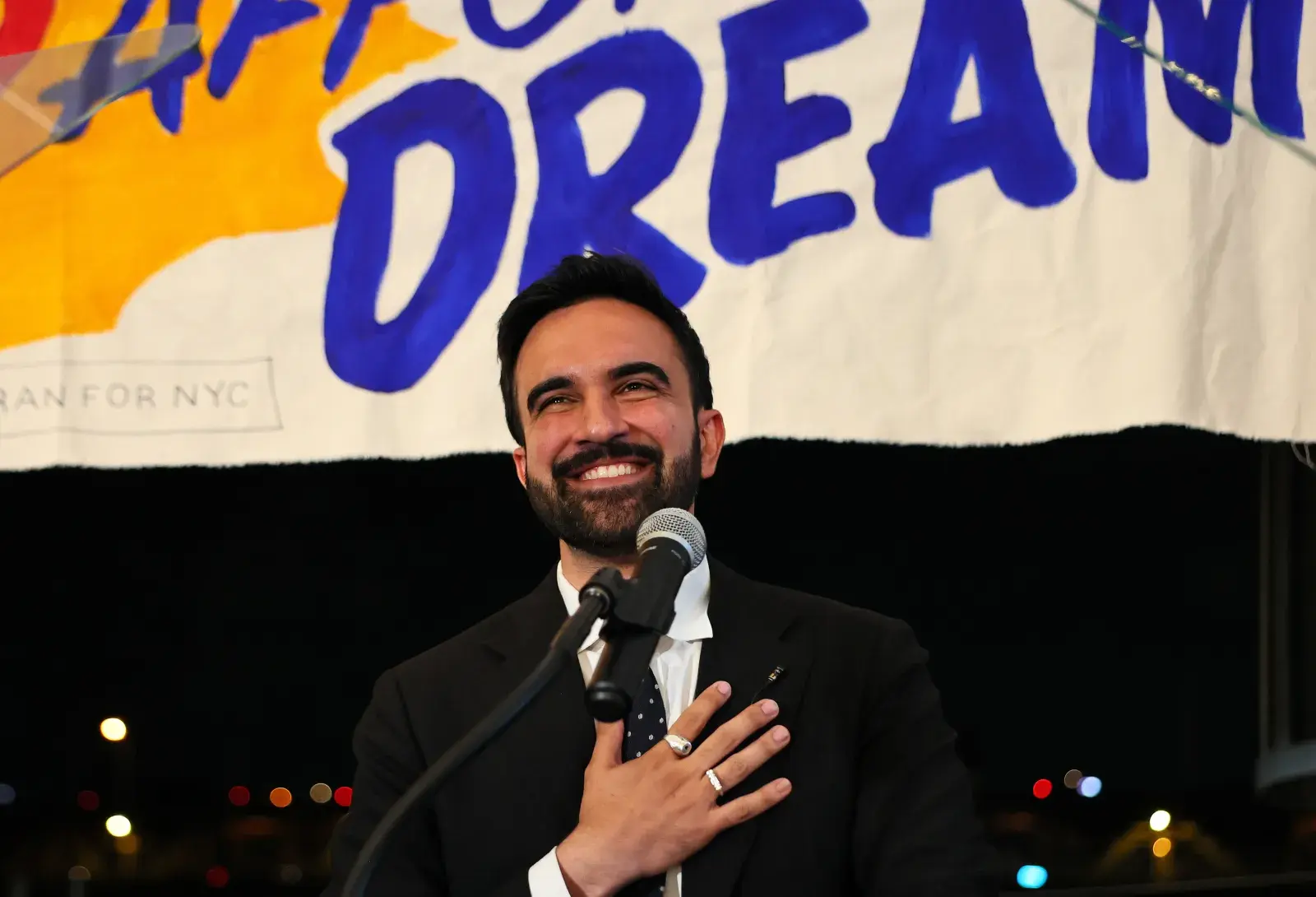House Minority Leader Hakeem Jeffries, a New York Democrat, endorsed Democratic socialist Zohran Mamdani for New York City mayor on Friday. In a statement to the New York Times, Jeffries said that “Zohran Mamdani has relentlessly focused on addressing the affordability crisis and explicitly committed to being a mayor for all New Yorkers, including those who do not support his candidacy,” adding, “In that spirit, I support him and the entire citywide Democratic ticket in the general election.”
The late endorsement from the congressman comes just ahead of the start of early voting on Saturday.
Newsweek has reached out to the offices of Jeffries and Mamdani via email on Friday afternoon for comment.
Why It Matters
Jeffries’ endorsement of Mamdani signals a significant shift in New York’s Democratic power structure, bridging a months-long divide between establishment leaders and the party’s progressive wing. As the House minority leader and a national figure, Jeffries’ support lends institutional legitimacy to Mamdani’s candidacy and may influence undecided voters ahead of early voting.
The move also highlights the Democratic Party’s internal reckoning over its ideological future, especially in urban strongholds like New York City. With key figures like Governor Kathy Hochul and Speaker of the New York State Assembly Carl Heastie already on board, Jeffries’ endorsement isolates remaining holdouts and underscores the growing influence of Democratic socialists in mainstream politics. It sets the stage for contentious debates over policy, party unity, and electoral strategy heading into the 2026 midterms.
Mamdani has shaken the political field in New York City, winning the Democratic nomination over former New York Governor Andrew Cuomo, who's now running as an independent. He has consistently been leading in the polls. The state assemblymember has been celebrated by many young progressives as well as endorsed by top Democrats, while criticized by conservatives and some moderates concerned about what the city would look like under his leadership.

What To Know
Jeffries' endorsement of Mamdani for New York City mayor comes months of internal party pressure and strategic hesitation. Jeffries acknowledged the two Democrats differences, telling the Times, they have "areas of principled disagreement," but also noted that Mamdani won "a free and fair election" in the primary, and the importance of a united party against the "existential" threat of President Donald Trump.
The House minority leader also said in his statement, "Assemblyman Mamdani has promised to focus on keeping every New Yorker safe, including the Jewish community that has confronted a startling rise in antisemitic incidents as well as Black and Latino neighborhoods that have battled deadly gun violence for years."
Jeffries’ backing aligns him with top Democrats who have recently rallied behind Mamdani, with Senator Bernie Sanders, a Vermont independent, and Representative Alexandria Ocasio-Cortez, a New York Democrat, set to rally alongside Mamdani in Queens on Sunday. Other prominent local Democrats, including Heastie and Representatives Jerry Nadler and Yvette Clarke have already endorsed Mamdani.
The move leaves Senate Minority Leader Chuck Schumer as the last major holdout among state Democratic leadership. Jeffries, who previously deflected questions about Mamdani, has expressed admiration for the candidate’s affordability agenda and concern over his rhetoric and policy execution. On Thursday, New York City Mayor Eric Adams, who ended his reelection campaign last month, endorsed Cuomo in the race.
Despite the growing list of supporters, the endorsement remains contentious within the party. New York Democratic Chair Jay Jacobs has refused to back Mamdani, and Representatives Ritchie Torres and Dan Goldman remain noncommittal, citing ideological differences.
What Happened in the NYC Mayoral Debates?
On Wednesday, candidates matched up for the second, and final, mayoral debate. In both debates, Cuomo attacked 34-year-old Mamdani's lack of experience, while Mamdani pushed back against Cuomo's gubernatorial record and sexual assault allegations.
Republican nominee Curtis Sliwa, who has refused to bow to a pressure campaign from some Republicans to leave the race to give Cuomo a better chance in the polls, accused his rivals of “fighting like kids in the school yard.”
The debate incorporated policy points on affordability and housing, Immigration and Customs Enforcement (ICE) raids on Canal Street this week, and state and federal relations.
When Is the NYC Mayoral Election?
New Yorkers can begin casting their ballots starting Saturday, October 25, which is also the last day to register to vote in the general election. Early voting runs through Sunday, November 2, ahead of Election Day on Tuesday, November 4.
Voters will choose among mayoral candidates, while also weighing in on City Council races, the public advocate, Manhattan district attorney, and several ballot measures.
Early voting hours vary by day, and polling locations may differ from those on Election Day. Voters are encouraged to confirm their designated sites and preview their ballots on the Board of Elections website. In-person voting on Election Day will be open from 6 a.m. to 9 p.m.
Update 10/24/25, 1:52 p.m. ET: This article has been updated with additional information.























